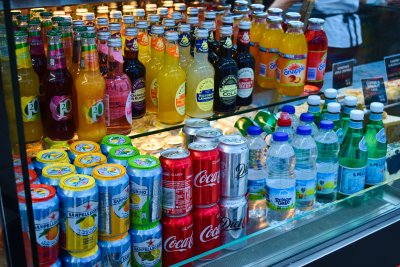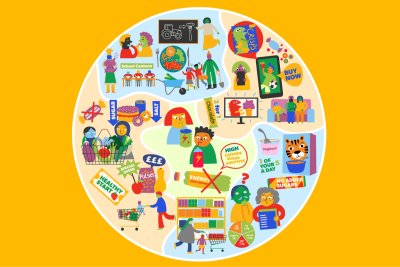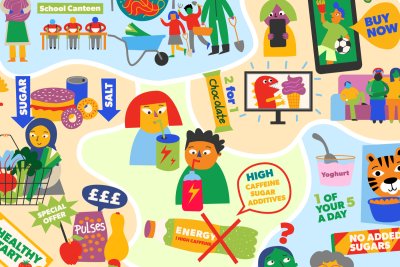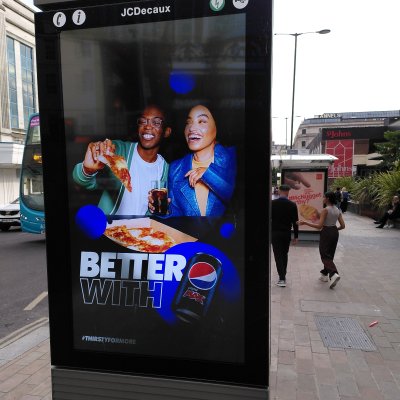Kath Dalmeny was interviewed about the dramatic rise and fall of the soft drink Sunny Delight for the Radio 4 programme Sliced Bread Presents.

During a Radio 4 programme investigating the demise of the once best-selling drink Sunny Delight, Sustain CEO Kath Dalmeny, shone a light on the risk sugary drinks pose to children's health.
The brand fell from favour after a four-year-old child turned yellow after drinking large quantities of Sunny Delight. While the beta carotene in the juice drink was responsible for the changes to the child’s skin colour, Kath points out the wider concern. She said:
‘There’s a four-year-old who’s drinking 150g of sugar a day. It’s only a few years from that point that we started to talk about type II diabetes in children, which used to be a disease only of late onset adulthood. What’s happening with highly sugary drinks is it’s changing the metabolism of children. Underlying all of this, is a change in our relationship with food.’
Sunny Delight was a soft drink from Procter & Gamble launched in the UK in the 1990s, which was marketed as a juice drink with added vitamins. Kath, who at the time was Head of Policy at The Food Commission, remembers the problematic drink as being 10% sugar and only 5% juice. Kath commented:
‘When you’ve got sugar in soft drinks, you’re whopping back a lot of sugar in a single go. You don’t necessarily feel full. So soft drinks are one of the main sources of sugar in young people’s diets.’
The intial secret to Sunny Delight’s success was in persuading parents that this was a healthy drink, this was mainly achieved through the added vitamins, marketing and its position in the chiller cabinet alongside juice and milk. Kath said:
‘The whole marketing proposition around Sunny Delight was that it was a bit like a fresh fruit drink because it was in the chiller. It makes it seem a bit more healthy and a bit fresher and something that would be good for kids. This is how you tell a story around a brand to give the impression that it is a healthy drink.’
Kath highlights the importance of advertising restrictions to 'change the reality for children' and safeguard children's health.
You can listen to the programme here.
Published Thursday 11 January 2024
Sustain: Sustain The alliance for better food and farming advocates food and agriculture policies and practices that enhance the health and welfare of people and animals, improve the working and living environment, enrich society and culture and promote equity.





